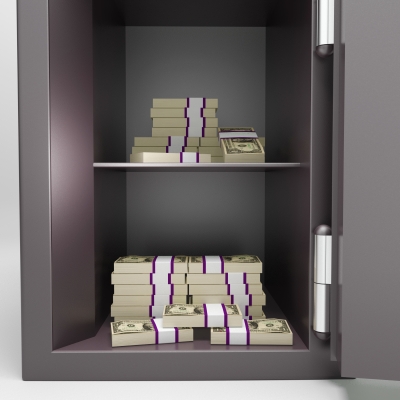Got Cash? Know What Not to Do with Your Money
Okay, this is not some fresh idea for a blog post. You’ve probably seen several other “what not to do with your money” articles online. However, most of those articles likely mention or discuss things you probably already know. Many are not even about the things that can be done with cash, but are on financial decision making in general.
This post aims to focus on direct actions you should not do with your cash.
1. Keeping Bundles of It in Your House
So what’s wrong with keeping your money at home? You have cash and you want to have convenient and quick access to it…is there anything wrong with that? The answer is a big YES. Generally, it’s unwise to keep money in your home for the following reasons (as featured on a US News Money blog):
- Burglary – You’ll never know when your home will be targeted by people with felonious intent. Even with your money kept in a safe, there’s no guarantee that it can’t be opened by skillful burglars.
- Accidents / Disasters – What if your house burns? What if flood strikes your place and your coffer gets deluged in mud and dirty water? It’s okay if you invested in a fireproof, water-proof, and burglar-proof safe. But what if you didn’t? Do you want to spend thousands of dollars just to buy a safe?
- No Interest Income and Proneness to Losses due to Inflation – Why let your money sleep when it can earn interest or gains if you put it in the bank or invest it somewhere? The interest income you can earn by putting your money in the bank may be small but at least there’s that little increase and you don’t have to worry about protecting your money on your own.
- No Insurance – Putting your money in the bank automatically puts it under some insurance that can let you recover all or some of your money in case the bank closes down. If you have it at home and you lose it because of burglary, fire, or simply because you forgot where you put it, then you’ve totally lost it unless you hunt the burglar or snap out of your “amnesia.”
- Pet Threat – Don’t expect your pitbull terrier to not be interested in the smell of money. If he can shred your mails and dailies to pieces, he can do the same to your bundles of cash. Or, it could be vermin attacking your hoard.
Money-wise people don’t let their money stay stagnant. They invest it or at least put it in the bank for protection. Also, if you’ve just experienced being rich for the first time, it’s time to leave the mentality of not wanting to be separated from your cash or to be irrationally overprotective of it.
2. Lending It to Family Members, Relatives, or Friends
No, we’re not promoting stinginess and greed here. Unless you can see that your help is really needed, as much as possible don’t start becoming that go-to person for cash needs. Money can ruin relationships even when you are being honestly generous and compassionate. Try to make it a policy not to lend your money to anyone. If you find a family member in dire need, give the money as a donation. It’s better to be known as someone who strictly does not lend money than to be at the receiving end of criticisms for having lent money once or a couple of times, and refusing to do so later on.
3. Setting Aside a Considerable Amount of Cash for the Sake of Maintaining Liquidity
Some people want to have their stash for the sake of being always liquid or having cash readily available at all times to be able to address emergency situations. There’s nothing wrong with this if you’re one wealthy person. However, if you are someone who encounters daily struggles with your financial situation, being always liquid only means making your limited wealth much easier to spend.
4. Entrusting It to a Neighborhood Bank as a Long-Term Investment or Retirement Fund
Neighborhood banks (assuming that your neighborhood bank is not the likes of Bank of America) are generally to be avoided unless you are sure that they are properly insured and that your money can be fully refunded in case your bank folds down. Neighborhood banks are prone to adverse changes in the economy. They are more likely to join the FDIC’s continuously growing list of failed banks. Avoid the risk and bank with a more established and long-running financial institution.
5. Safekeeping Cash to Become Your Inheritance
So you want to prepare something to bequeath to your future heirs. Be aware that planning to leave cash to your heirs would be a big disfavor to them. Even if you put the cash in a bank, even as a time deposit, it’s still not advisable to leave cash to your inheritors. The value of the cash you have been saving will most likely go down due to inflation. Also, the interest the cash would be earning at a bank will not compare to the probable increase in value of real estate or real properties you could have bought with the cash.
Well, this sounds like an advice to a newbie but there’s actually something deeper in here. This is about emphasizing the decreasing value of cash compared to other forms of assets or investments. It’s important to think of cash only as tools for wealth accumulation. While cash is indeed the best measure of wealth or asset value, it is only just a face for value. People are meant to use cash (wisely, of course), not keep it.
Of course, indiscriminate, unplanned, or unwise spending is something you should never do to your cash. It’s a given. It should be something everybody already knows. The five points mentioned above are just some of the things to avoid when handling your most liquid asset. There are more things to learn about cash management so be sure to drop by this blog regularly.



